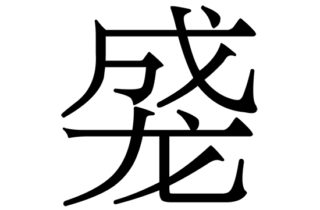What is duang (pronounced “dwong”), you may ask? Well, at present the meaning is quite ambiguous; however, that hasn’t stopped it from becoming the most popular word on Chinese social media platform Sina Weibo. According to the Foreign Policy Blog it has been used more than 8.4 million times.
While here in the West we’ve all been discussing a certain blue and black/white and gold dress, in China the Internet has been bombarded with discussions about this new onomatopoeia in an attempt to debug its true meaning. Unfortunately, duang is yet to be featured in the Chinese dictionary; therefore, there is currently no perfect translation.
Internet users have subsequently taken matters into their own hands, with most people choosing to use it as an adjective to describe something positive – “I look so duang in this top” – or to emphasise a negative situation that has suddenly occurred – “Duang! I forgot my car keys!” Others, however, have been employing it as an adverb to accentuate the word that follows. For example, “I’m so duang hot today” or “I feel so duang amazing!”
The History of Duang
It seems like there’s only one man who can unlock the mystery; Jackie Chan. The martial artist recently posted an old video of himself on social networks starring in a Bawang Shampoo commercial from 2004. The video features Chan rhythmically using the word “duang” to describe the effects of the product as he whips his sleek black mane back and forth. Unknown to most, the video that went viral and popularised duang was actually a parody that was spliced together using footage from the highly questionable past endorsement.
Chan’s latest film, Dragon Blade, performed strongly at the box office, causing his name to surge back to the top of the Eastern A-list after a long period out of the limelight. The success of the film without a doubt paved the way for duang’s sudden rise in popularity.
The word has become so popular it has even spawned its own Chinese character – a combination of Chans names written in Chinese. These two characters, however, take on another meaning altogether, roughly translating to “accomplished dragon”. Again, this does nothing other than contributing to the widespread dumbfoundedness of the nation. During a recent press conference, reporters even asked Chan to explain the meaning of the word, to which he gave the equally ambiguous answer, “It’s fun.”
Social Media Performance
The LA Times has reported that, as of 5th March, the word “duang” has been read by more than 180 million people and discussed by over 500,000. In addition, when Chan recently posted it on his Sina Weibo account it amassed almost 50,000 comments and over 65,000 reposts. There’s been so much interest in the word that it has even spawned its own page on the search engine Baidu.
Like many of life’s big philosophical questions – “Why are we here and what does it all mean?” – The more one searches for a definitive translation, the more confusing it becomes. It’s just so duang frustrating!

